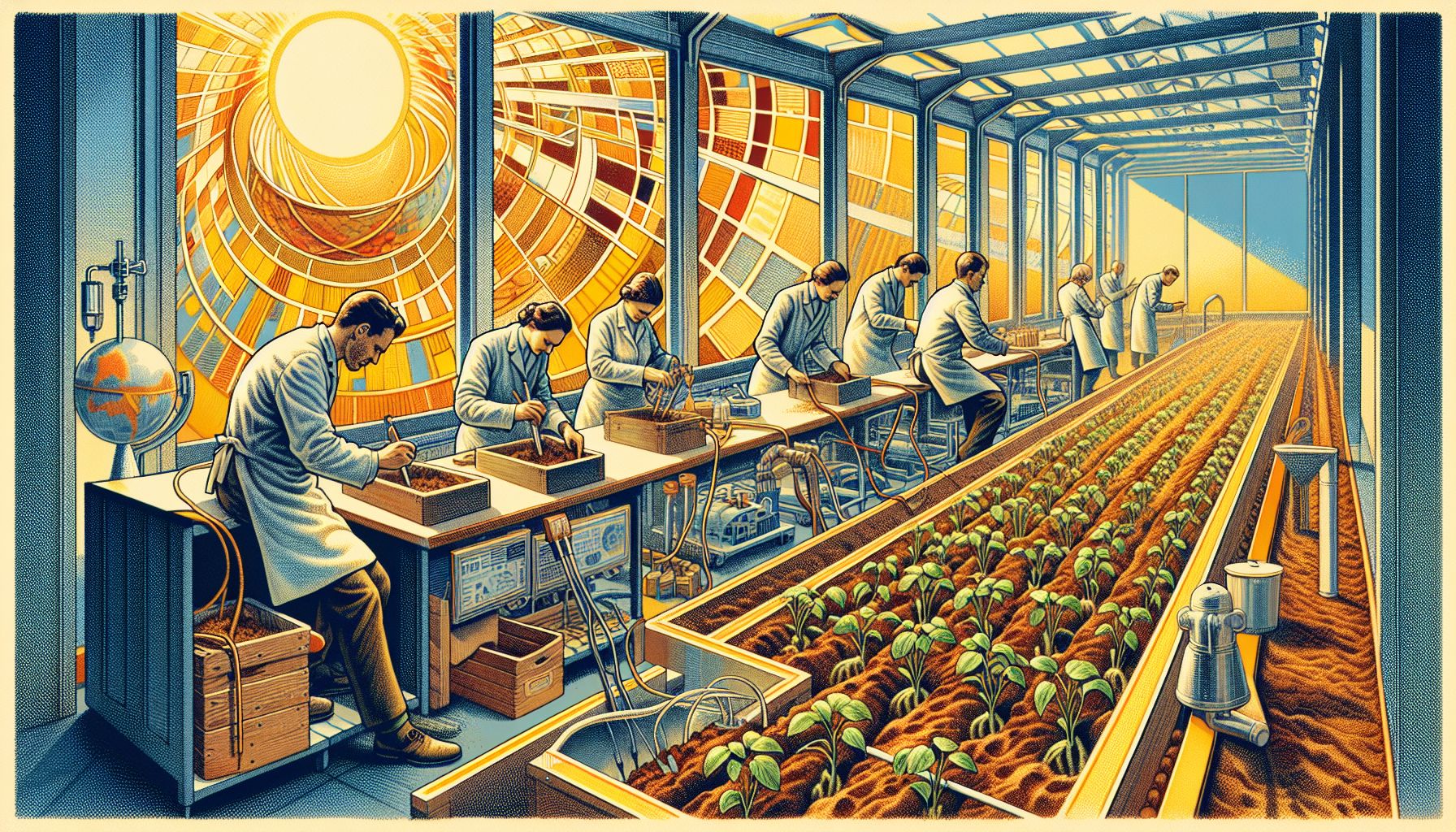Dutch scientists pioneer intercropping for Mars agriculture

Researchers at Wageningen University have developed intercropping techniques to grow food on Mars, potentially aiding future colonies and Earth’s agriculture.
Innovative Techniques for Sustainable Space Farming
In the pursuit of sustainable off-world colonization, Dutch scientists at Wageningen University & Research have taken a giant leap forward. Their pioneering study on intercropping in Martian soil conditions has demonstrated a remarkable increase in crop yields. This method, which involves growing different crops in close proximity, was notably successful with a mix of peas, carrots, and tomatoes, harvesting over half a kilogram of fresh produce. Tomatoes, in particular, flourished, signaling a potential staple for space agriculture.
The Team Behind the Breakthrough
The groundbreaking research was led by a committed team of scientists: Rebeca Gonçalves, Wieger Wamelink, and Jochem Evers. This trio’s expertise and collaborative efforts have not only pushed the boundaries of space farming but also opened up new avenues for addressing food security on Earth, particularly as global warming and population growth present pressing challenges.
Challenges and Potential of Intercropping
Intercropping on Mars is not without its difficulties. Unique challenges such as microgravity effects on plant growth, the necessity for artificial lighting, and the need for energy-efficient processes have been identified. However, the technique’s success in simulated environments suggests that with certain improvements, such as optimizing conditions for nitrogen-fixing bacteria, intercropping could become a key strategy for maximizing food production on Martian colonies.
Implications for Earth’s Degraded Lands
The implications of Wageningen University’s study extend far beyond space exploration. With 40% of Earth’s agricultural land currently degraded, affecting 1.5 billion people worldwide, the techniques developed for Martian agriculture could be instrumental in revitalizing Earth’s soils. The research into space farming offers ecological benefits and the potential to improve resilience in crops against drought and pests, leading to higher-quality yields here on our home planet.
Bronnen
- innovationorigins.com
- www.hortidaily.com
- www.feedstuffs.com
- pubmed.ncbi.nlm.nih.gov
- learningenglish.voanews.com
- www.starthubwageningen.nl

